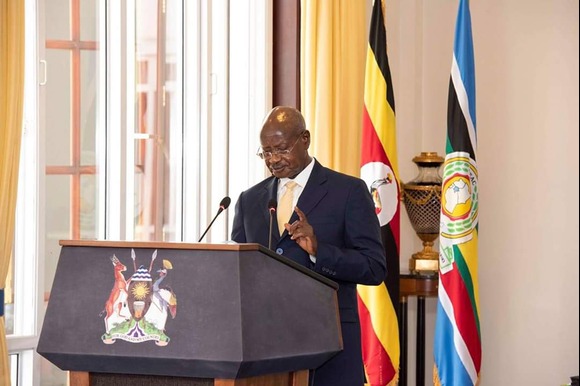Uganda has agreed to temporarily host foreign nationals who may be denied asylum in the United States but are unwilling or unable to return to their home countries, Kampala’s Ministry of Foreign Affairs announced on Thursday. The deal, still in the process of being finalized, is part of a broader effort by the U.S. to expand deportations of undocumented migrants to third countries.
According to a statement from the ministry, the arrangement is contingent on several strict conditions: only individuals without criminal records will be accepted, and unaccompanied minors will not be eligible. The ministry emphasized that discussions on the operational details of the agreement are ongoing.
“This is a temporary arrangement with conditions including that individuals with criminal records and unaccompanied minors will not be accepted,” said Vincent Bagiire Waiswa, the Ministry’s Permanent Secretary. He added that Uganda prefers the transfer of individuals from African nations over those from other continents.
Although the ministry did not confirm whether the agreement has been formally signed, it stated that the deal had been “concluded,” suggesting both sides had reached a mutual understanding on key terms.
The deal positions Uganda as the latest East African country to engage in such a partnership with Washington, joining Rwanda and South Sudan. With approximately 1.7 million refugees already residing within its borders, Uganda hosts the largest refugee population on the African continent, according to the United Nations.
The U.S., under President Donald Trump’s administration, has intensified efforts to remove millions of undocumented immigrants, including plans to deport individuals—some with criminal records—to countries such as South Sudan and the Kingdom of Eswatini. In July, the U.S. deported five men with criminal histories to Eswatini and another eight to South Sudan.
Since returning to the White House in January, President Trump has accelerated deportations to third countries, including sending hundreds of alleged Venezuelan gang members to El Salvador, where they were held in a high-security prison under harsh conditions before being returned to Venezuela.
Human rights groups have raised alarm over such deportations, warning that they may violate international law by transferring individuals to countries where they face serious risks such as torture, enforced disappearance, or other abuses.
Uganda’s announcement comes just a day after a top government official denied reports that the country had agreed to take in deportees from the U.S., citing a lack of infrastructure to accommodate such individuals. Foreign Affairs Minister Henry Okello Oryem told the Associated Press that while Uganda’s refugee policy is widely regarded as open and progressive, there are limits.
“We are talking about cartels: people who are unwanted in their own countries. How can we integrate them into local communities in Uganda?” he asked. Oryem insisted that the government had been in talks with the U.S. on issues such as visas, tariffs, and sanctions—not the acceptance of illegal migrants. “That would be unfair to Ugandans,” he added.
Despite such reservations, Uganda’s overall approach to refugees remains widely praised by international organisations. The UN Refugee Agency (UNHCR) notes that the country has maintained an “open-door approach to asylum” and continues to implement a “progressive refugee policy.” However, the agency also warned of increasing pressure on the system, citing a “significant” rise in refugee arrivals in 2024, mainly due to the ongoing civil war in Sudan, as well as continued unrest in South Sudan and the eastern Democratic Republic of the Congo.
As Uganda and the U.S. finalize the terms of the agreement, questions remain about how the deal will be implemented and whether it will prompt further scrutiny from international rights observers concerned about the ethical and legal implications of third-country deportations.






